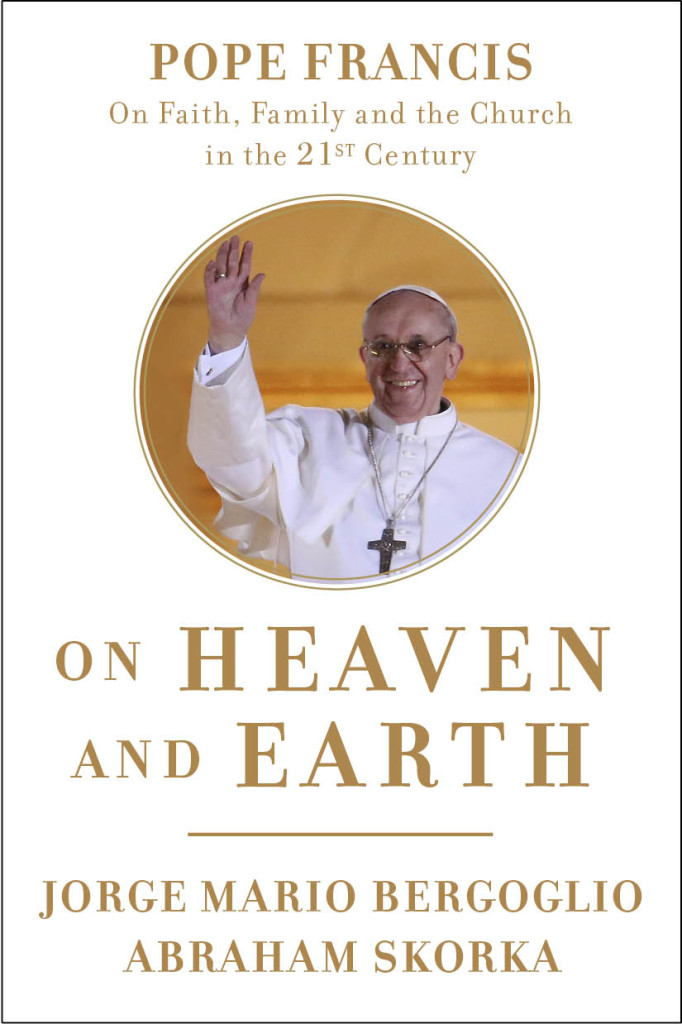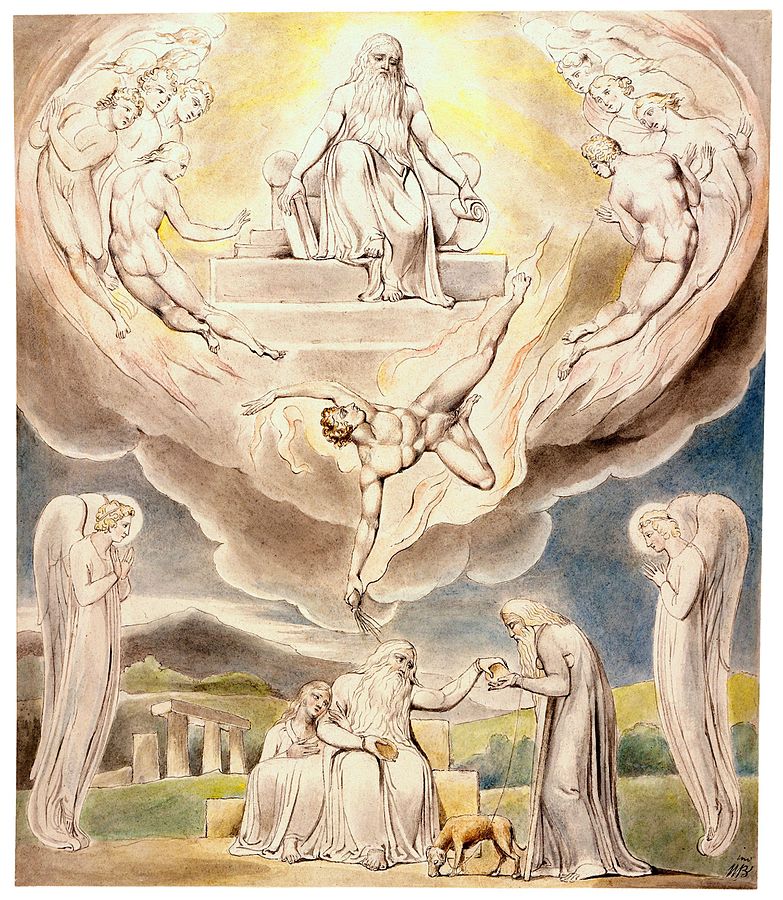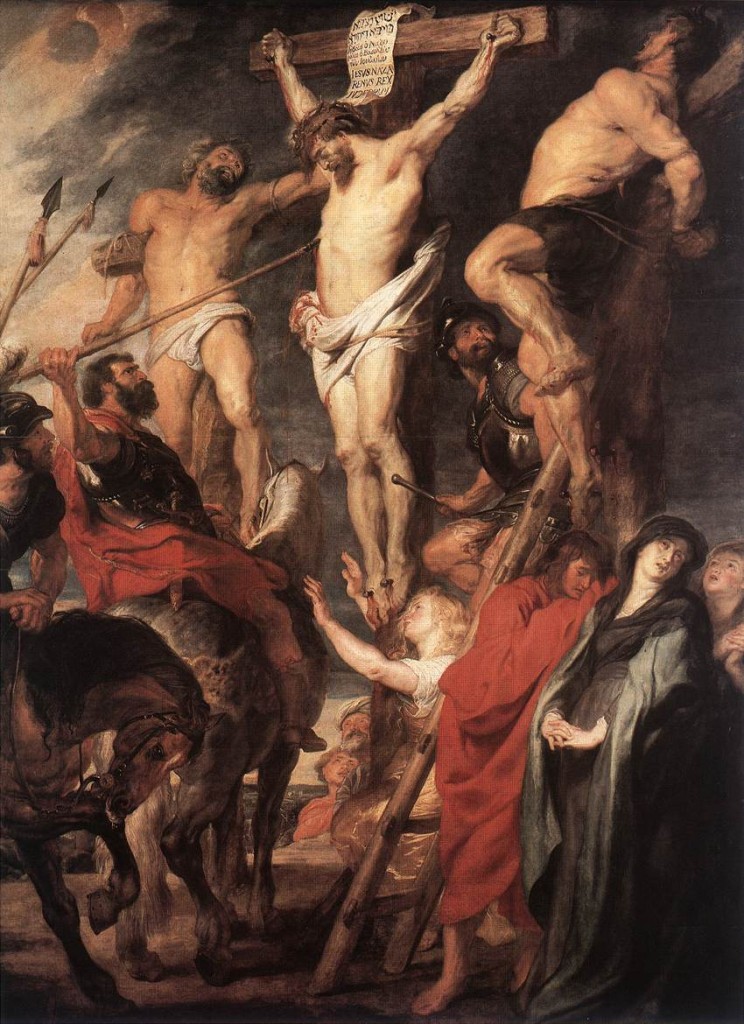Cassius: Tell me, good Brutus, can you see your face?
Brutus: No, Cassius; for the eye sees not itself,
But by reflection, by some other things…
Cassius: Therefore, good Brutus, be prepared to hear:
And since you know you cannot see yourself
So well as by reflection, I, your glass,
Will modestly discover to yourself
That of yourself which you yet know not of.

As eloquently put by Shakespeare in his “Julius Caesar,” the only way a man can see his face is by looking at his reflection, and sometimes that reflection can be found in the eye of the other.
When we of the Abrahamic faiths view each other’s beliefs, what do we see?
Do we assess our actions as institutions and as individuals and see that we fall short of the principles that should be the basis of our different religious institutions? Do we see people who use the principles of their faiths to uplift others, who treat each human being as the image of God and who accompany their beliefs with justice, honesty and love? Do we care for the poor, needy and elderly in our communities and do we stand up for the downtrodden and oppressed in our societies? Do we speak up to corruption and injustice where we see them? Or are we content with what we see and who we are?
When we look at each other what do we see?
Do we see the other as a stranger and are we fighting against each other or do we see ourselves as brothers working out our differences with dignity and respect for each other? Do we make room for each other’s beliefs or do we trample them under foot? Do we try to look for the good in each other and when we see it applaud and encourage it? Do we matter to each other, first as human beings and second as persons belonging to whatever belief system we ascribe ourselves to?
When we of the Abrahamic faiths view each other’s beliefs, what do we see?
These and more are issues that arise as Cardinal Jorge Mario Bergoglio (now known as Pope Francis) and Rabbi Abraham Skorka engage one another on aspects of their shared faith. On Heaven and Earth is a mirror on the world of the Judaeo-Christian church and these giants of their respective faiths take on themselves the challenge of projecting that reflection in an earnest, scrupulous and honest examination.
The book documents a series of discussions between Bergoglio and Skorka on various topics of the human endeavour and it explores their beliefs concerning these issues. From the concept of God, to religious leadership, poverty, science and politics, both men shared similar beliefs – demonstrating that there is precious little differentiating the pillars of each Abrahamic faith. Their enterprise exemplifies what religious debate ought to look like – respect for our sensibilities, appreciation for our similarities and an understanding of our differences. A lesson that people of the Abrahamic faiths would do well to learn.
There were moments that challenged both men to disagree without being disagreeable. The Holocaust presented such a test. Skorka questioned the response of the Catholic Church, or the lack thereof, to the suffering of the Jews, and in response Bergoglio sought to shed light on the attitudes of the Pope and leadership of the Catholic Church at the time. Although Bergoglio did not agree with the points raised by Skorka, he acknowledged them and was able to see value in further exploring the issues identified – not just from an emotional standpoint but from that of fact.
Both saw the religious life more as a duty to mankind and God than a fixation with rituals and liturgies.
It must be said however, that Skorka’s views on the Arab-Israeli conflict appeared rushed and lacked the depth you would expect from a mind as astute as his. He did not fully explore the actions of the Israeli state, but instead facilitated a general discussion on the concept of conflict. It would have been nice to read his thoughts on the Israeli settlements in the West Bank, the violence by both sides and the mutual distrust that has developed over time in the region.
Because both men saw the religious life more as a duty to mankind and God than a fixation with rituals and liturgies, both men worship the same God in exactly the same way. They only chose to approach Him in different apparels. The great success of the book is to consign the traditions that separate both faiths to reducible quantities. That is the kernel of their dialogue.
This was all the more apparent in the similarity of each man’s approach to poverty, for they both agree that Christianity and Judaism share the belief that true religion is a call to fight poverty and a commitment to care for the poor.
Does the call to preach and uphold human and religious values have a political consequence?
On Politics & Power both men explore the role of religion and religious leaders in politics. Should religious leaders and religion as a whole separate itself from politics or do we have a role to play in speaking truth to power – just like the biblical prophets? Do we exist to positively impact the values of the society or community and where possible influence social and political change? Does the call to preach and uphold human and religious values have a political consequence and should the church and its leaders propose these values fairly and without prejudice? Maybe so.
Finally, in addition to addressing political and societal issues, both men were also quick to identify the good that the other party had done in their community or in the faith as a whole. Skorka showed deep respect and appreciation for Bergoglio’s impact on inter-religious dialogue, while Bergoglio acknowledged Skorka’s role in social justice and charity within the community – religion in action.
In having these discussions and publishing them as a book, both guardians of faith exhibit what it means to be true brethren – that though they belong to different institutions, they are the children of one God. Both men challenge us as people of the Abrahamic faith, Christians, Jews and Muslims alike to take a critical look at ourselves – to become the man assessing his reflection.
An exercise worthy to be applauded and a kinship worth emulating.


